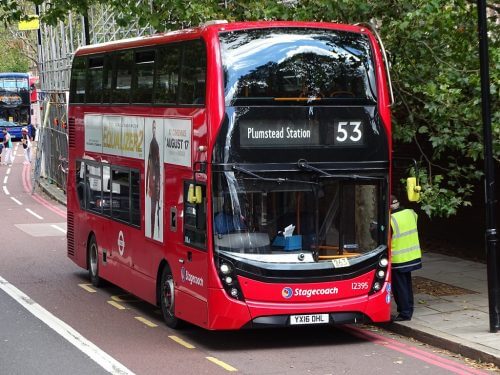34 routes are affected by the plans, which are the first major revisions to the area’s network for 16 years
Transport for London (TfL) has published its proposals to ‘modernise’ central London’s bus network, addressing a number of underused services in the area.
The latest changes are the first to comprehensively revamp the central network in 16 years and are intended to help the network grow in outer London as well as boost the efficiency of central London’s buses.
TfL says the proposals are about ‘providing the right number of buses, in the right place, at the right time,’ and it’s hoped they will also help address air pollution in the capital.
The list of proposed changes are as follows:

Routes 149 and 242 have both reductions and increases in frequency; 149 will increase Monday to Saturday during the middle of the day and decrease during evenings and Sundays, while 242 will decrease overall but benefit from an extra peak journey from Liverpool Street to Kingsland road.
Now open for public consultation, the plans would ‘reshape the central London bus network to respond to current and predicted passenger demand, mainly through frequency changes or partially restructured routes.’
TfL is planning to remove spare capacity in central London – improving air quality as a side effect – and increase bus mileage in outer London, addressing a lack of public transport in certain areas.
In the last three years, demand for buses in central London has dropped by 12%; TfL blames this fall on the increase of alternative transport options available as a result of upgrades to the Tube and Overground network, as well as investment in cycling and walking.
“Some roads in central London, such as Kingsway in Holborn, are now served by more than 100 buses an hour, many of which are significantly underused,” says TfL. “This oversupply of buses can cause congestion, slowing down journey times and worsening reliability, air quality and road safety.
“If no action is taken, GLA figures show that by 2041, three days would be lost per person every year due to congestion on London’s roads, and 50,000 hours would be lost to slower bus speeds in the morning peak every day.”

Geoff Hobbs, Director of Public Transport Service Planning at TfL, said: “Buses have a crucial role to play in boosting the number of people using public transport, but they can’t do this without reflecting how London has changed.
“It is only right that we reassess the network after the significant changes in both London’s infrastructure and how Londoners choose to travel.
Londoners expect their buses to be where they are needed and run in an efficient and cost-effective manner and that’s what this review is about.
“Our proposals to reorganise the bus network would modernise bus travel in London by matching capacity with demand, reducing bus-on-bus congestion while enabling year-on-year increases in bus services in outer London. In adapting underused and inefficient services in central London, our plans will help reduce pollution that has such a damaging effect on the health on Londoners.
“Ultimately these changes, which are predominately minor route restructures or timetable adjustments, would create an efficient modern network with buses in the right places at the right times.”
To have your say on the proposals, visit: consultations.tfl.gov.uk/buses/central-london

